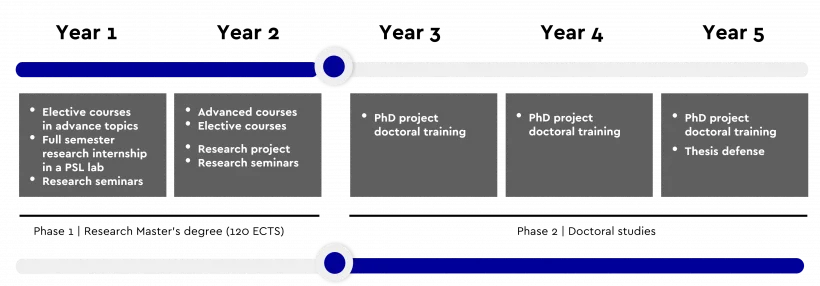PhD Seminars (Electives)


PhD Seminars (Electives)
SEMINAR IN HUMAN RESOURCE MANAGEMENT(3 credits)
This seminar provides a rigorous and intensive introduction to some of the basic functions and issues in area of Human Resource Management (HRM). Emphasis is placed on mastering a number of core concepts that drive research and practice. Students are expected to develop an understanding of the research foundations that underpin the field, and build an appreciation for the intellectual history and evolution of HRM as a key management function. Topics include the following:
• Strategic and operational human resource planning and staffing
• Employee relations
• Employee development
• Performance management
• Compensation policy and practices
• External influences such as legal and international environments
• HR and organizational performance
• Issues in industrial relations
SEMINAR IN INDUSTRIAL RELATIONS(3 credits)
This course provides an examination of theory and research in the academic field of industrial relations. Particular attention is paid to the historical evolution and assessment of different theories and disciplinary perspectives used in research on work, employment, and industrial relations. The course compares the normative assumptions, theories, and methodologies used by economists, historians, sociologists, psychologists, political scientists, and legal scholars who have contributed to knowledge in the field. Topics include the following:
• Institutionalists, neo-institutionalists and pluralism
• Industrial relations systems
• Current labor market problems
• Collective bargaining
• Unions and unionization
• Public sector employment relations
• Alternatives to unions
• Dispute resolution
• Labor and globalization
• Public policy and labor
NEGOTIATION (3 credits)
This course presents negotiation theory, strategies and styles, within an employment context. Special emphasis is placed on understanding the sources of power in negotiation. It covers conflict management as a first party and as a third party (third-party skills include helpingothersdeal directly with their conflicts, mediation, investigation, arbitration, and helping the system itself to change as a result of a dispute). Topics include the following:
• The Bargaining Zone
• Persuasion
• Integrative Bargaining
• Power
• Social Norms of Division
• Trust
• Emotion
• Deceit
• Conflict Style
• The Principal-Agent Relationship
• Multilateral Negotiations
• Negotiation strategy and behavior
• Labour and management attitudes and relationships
• Conflict and cooperation
LEADERSHIP SEMINAR (3 credits)
This doctoral seminar helps students to appreciate key theories and issues surrounding the leadership of people, systems, and organizations. The nature and instrumentality of the leadership variable in organizational performance will constitute the central focus of this seminar. Emphasis will be placed on understanding classic and contemporary theories as well as methodologies of organizing, managing, and leading people, systems and organizations. The contextual effects of leadership in such areas as diversity, organizational change, teams & group dynamics, ethics and the role of culture are also explored. The following topics are covered in the seminar:
• The nature of leadership
• The leadership process
• Levels of leadership
• Major leadership research approaches
• Major leadership theories
• Indicators of effective leadership
• Leadership dysfunctions
• Leadership practice arenas
• Leadership development in organizations
ORGANIZATION CHANGE (3 credits)
This doctoral seminar seeks to develop theoretical and conceptual understanding of organizational change and how to manage it. Through reading and discussion students will obtain a deep appreciation of the organizational change literature and some seminal case studies on change. This course further seeks to develop students’ skills in critically reading and evaluating scholarly works that may have bearing on their research interests. The following topics are covered in the seminar:
• Brief history of organization change
• Theoretical foundations of organizations and organization change
• Nature of organization change
• Levels of organization change
• Organization change: Research and Theory
• Conceptual models of organization change
• Leading organization change
• Measuring organization change
• Evaluating and sustaining organization change
• Future research in organization change
CREATIVITY AND INNOVATION (3 credits)
In this doctoral seminar, individual creativity and organizational innovation are linked. As such students will focus on the basic idea that organizational innovation is the successful implementation of creative ideas within an organization. Furthermore, this seminar focuses on the conditions that shape individual creativity in persons on one hand, and the processes shaping innovation development and adoption in organizations. The following topics are to be covered in the seminar:
• Nature of creativity
• Creativity and organization change
• Components of organizational creativity
• Levels of analysis of creativity- individual; group; organizational
• Theories of creativity
• Conceptual models of organizational creativity
• Nature of innovation
• Theories of innovation
• Conceptual models of innovation adoption
• Types of innovation- technical; administrative; product
• Stages of adoption of innovation
• Scope of innovation
• Innovation development
• Problems in innovation management
• Integrative models of creativity and innovation in organizations
• Innovation and organizational performance
Recent Posts
How do I create an engaging and informative online quiz or assessment?
Creating an engaging and informative online quiz or assessment can be a powerful tool for… Read More
What are the most effective methods for managing and reducing work-related stress in the hospitality industry?
Work-related stress is a common issue in the hospitality industry, where employees often face long… Read More
How can I improve my assertiveness and communication skills in a leadership position?
In a leadership position, assertiveness and effective communication skills are crucial for success. Being able… Read More
What are the key elements of a successful employee recognition and rewards program?
Employee recognition and rewards programs play a crucial role in motivating and engaging employees, as… Read More
How do I effectively manage and respond to customer feedback and reviews?
Customer feedback and online reviews play a crucial role in shaping a company's reputation and… Read More
What are the best strategies for effective time management as a stay-at-home parent?
Effective time management is crucial for stay-at-home parents who juggle multiple responsibilities on a daily… Read More